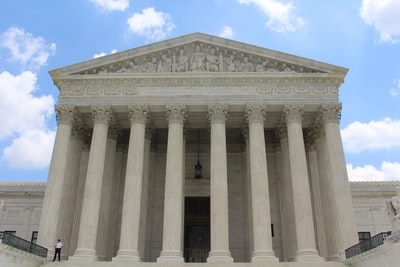Email has become a ubiquitous part of our lives, an indispensable tool connecting us in an instant, but little do we realize the untold truth about email security. This revelation is particularly alarming for legal professionals who handle sensitive and confidential information on a daily basis.
With the advent of technology, lawyers and legal teams have embraced the convenience of email as a means of communication, but they may not be fully aware of the inherent risks lurking in the digital realm. As the digital world expands, so does the need for robust email security measures, as the consequences of a breach can be catastrophic, leading to reputation damage, compromised client information, and even legal malpractice claims.
In this article, we delve into the complex world of email security for legal professionals, navigating through the maze of potential threats, outlining best practices, and shedding light on innovative solutions to safeguard attorney-client communications from cyberattacks.
Unveiling the Untold Truth: Shocking Email Security Revelations for Legal Professionals. Brace yourself, dear reader, for a rollercoaster ride of revelations that will leave you questioning every keystroke you’ve ever made.
Email security has long been a murky landscape, shrouded in secrecy and vulnerability. But today, we strip away the veil and expose the truth, a truth that will shock even the hardened legal professionals.
Prepare to have your foundations shaken, your assumptions shattered, as we dive deep into the labyrinthine world of encrypted messages, secret backdoors, and unscrupulous hackers lurking in the shadows. Yes, the mere thought of lawyers, attorneys, and paralegals sending confidential information through email may seem commonplace, but what if we told you it was akin to dancing on the volcanic edge of disaster? What if we told you that every time you attach a document, divulge a password, or hit send, you are unwittingly exposing yourself to an array of digital predators hungry for your precious data? And here’s the kicker, folks: it’s not just low-level cybercriminals looking for an easy payday; oh no, we’re talking about state-sponsored hackers, brilliant minds employed by clandestine organizations seeking to wreak havoc on the legal profession.
Imagine their gleeful grins as they bypass firewalls, decode encryption, and effortlessly infiltrate the most secure email systems. Are you sweating yet? You should be.
For amidst this chaos, a chilling question emerges: Can we ever truly trust email? Can we ever feel secure in the knowledge that our privileged conversations remain concealed from prying eyes? It’s a question that plagues legal professionals worldwide, for they are at the very frontline of this digital battlefield. So, dear readers, as we embark on this captivating journey through the treacherous realm of email security, fasten your seatbelts, keep your hands inside the ride at all times, and prepare for revelations that will forever change the way you view your inbox.
It’s going to be a bumpy, exhilarating, and eye-opening ride, filled with twists and turns that will challenge even the most seasoned legal minds. So, ready yourself, for we’re about to unveil the untold, shocking revelations about email security.
Table of Contents
Email Security Risks: An Overview
Email is a highly vulnerable form of communication. Despite advancements in technology, sending an email is not safe or secure.
Legal professionals, who handle sensitive information regularly, are especially at risk. Hackers can easily intercept emails, gaining access to confidential data and causing significant harm.
This article aims to highlight the risks associated with email security for legal professionals and provide actionable tips for secure communication. Measures such as using encryption tools and implementing multi-factor authentication can help protect sensitive information.
Therefore, legal professionals must prioritize email security to ensure their own and their clients’ safety.
Common Threats Faced by Legal Professionals
‘Email Security Challenges and Solutions in the Legal Profession’ highlights the vulnerabilities that legal professionals face in the digital age. Email communication plays a vital role in the legal profession, dealing with confidential client information and sensitive case details.
However, with technological advancements, new and evolving threats arise. This section reveals the truth about the shocking vulnerabilities in email security that legal professionals must confront.
It explores common threats like phishing attacks, data breaches, and email interception. The unpredictable nature of cybercrime emphasizes the importance of understanding these threats and remaining vigilant in protecting clients’ information.
The section discusses solutions such as implementing stronger encryption protocols and utilizing secure email service providers. The varied information in this section serves as a wake-up call for legal professionals, reminding them to prioritize email security and safeguard their critical communications.
The Impact of Email Breaches on Legal Practices
Email breaches can have a significant impact on legal practices. In today’s world, where trust and confidentiality are vital for legal professionals, the revelation of email security breaches can severely shake the foundations of the legal industry.
Cybercriminals are becoming increasingly sophisticated, making it essential for legal professionals to prioritize email encryption. The reality is that these breaches can have far-reaching consequences, from compromising sensitive client information to undermining the credibility of legal practitioners.
The legal industry is not immune to the vulnerabilities of email communication, so it is crucial for professionals to adopt robust encryption solutions. By implementing secure email protocols, legal professionals can protect their confidential communications, maintain client trust, and uphold the integrity of the legal profession.
Dealing with email security breaches urgently requires encryption, which serves as the first line of defense in this digital battlefield.
Strategies to Enhance Email Security Measures
In the fast-paced legal world, where confidentiality is crucial, email security has become a major concern. Shocking revelations about vulnerabilities have lawyers scrambling to improve their protection.
In a world where hackers constantly evolve, staying ahead is crucial. One strategy to improve email security is end-to-end encryption, ensuring only the intended recipient can read the message.
Another approach is two-factor authentication, adding an extra layer of security by requiring additional verification. Additionally, regular staff training on email security best practices can help reduce risks.
However, there is no foolproof solution, and constant vigilance is necessary. The stakes are high, and legal professionals must be prepared to adapt and evolve as the email security landscape continues to change.
Legal Obligations and Ethical Considerations
Are you a legal professional who needs to navigate the complex world of email security? Well, get ready because we have some shocking information for you. In today’s digital age, protecting sensitive information through email is a major concern for legal practitioners.
However, understanding the legal obligations and ethical considerations surrounding this topic can be confusing. From attorney-client privilege to data breaches, mishandling confidential information can have serious consequences.
That’s why it’s important for legal professionals to stay updated on the best practices and technologies for securing email communications. In this section, we will explore the legal obligations that govern email security, discuss ethical considerations, and provide practical tips for safeguarding your clients’ sensitive information.
Let’s uncover the truth together and make email security a top priority in your legal practice.
Future Trends: Safeguarding Email Communication in the Legal Field
Are your emails really secure? A recent study has revealed the vulnerabilities of email security for legal professionals. In a field where confidentiality is crucial, it is concerning to learn that many legal firms do not adequately protect their sensitive information.
A security breach could have devastating consequences, damaging clients’ trust and potentially leading to legal consequences. It is essential for the legal industry to stay ahead of cybercriminals who are increasingly sophisticated.
This article explores future trends and innovative solutions that can protect email communication in the legal field. Experts emphasize the importance of encryption, two-factor authentication, and secure servers.
Stay informed about the future of email security for legal professionals.
Cleanbox: The Revolutionary Email Management Tool Empowering Legal Professionals with Enhanced Security
Cleanbox, the cutting-edge email management tool, has emerged as a game-changer for legal professionals seeking to enhance their email security. With its remarkable capabilities fueled by advanced AI technology, Cleanbox revolutionizes the way inboxes are organized and protected.
Gone are the days of sifting through endless spam and potentially harmful emails; Cleanbox efficiently sorts and categorizes incoming messages, thwarting phishing attempts and shielding users from malicious content. Its standout feature is the ability to prioritize important messages, ensuring that vital communications rise above the clutter.
Legal professionals can now entrust their email management to a tool that not only streamlines the user experience but also safeguards sensitive information. Cleanbox‘s innovative approach paves the way for a more secure and efficient email system, putting the minds of legal professionals at ease while they focus on their clients’ needs.
Frequently Asked Questions
Some common email security risks faced by legal professionals include phishing attacks, data breaches, email spoofing, and unauthorized access to confidential information.
Legal professionals can protect their email communications by using strong passwords, enabling two-factor authentication, encrypting emails, regularly updating security software, and being cautious of suspicious emails or attachments.
Email encryption is the process of encoding email messages to prevent unauthorized access. It is important for legal professionals because it ensures the confidentiality and integrity of sensitive client information, reducing the risk of data breaches and unauthorized disclosures.
The consequences of a data breach for legal professionals can include reputational damage, loss of client trust, legal liabilities, financial losses, regulatory penalties, and potential ethical violations.
Legal professionals can identify phishing emails by checking for suspicious email addresses or domain names, verifying email senders, being cautious of urgent or threatening language, avoiding clicking on suspicious links or attachments, and double-checking email headers for any inconsistencies or anomalies.
Some best practices for email security in the legal profession include regular employee training on cybersecurity awareness, implementing strong password policies, using secure email providers, regularly updating security software, and conducting regular audits of email systems and security protocols.
In Closing
In today’s digital age, it is crucial for legal professionals to prioritize the safety and security of their electronic communications. The ramifications of a data breach or unauthorized access to sensitive information can be devastating, not only in terms of compromised client confidentiality but also potential legal consequences.
With cybercriminals becoming increasingly sophisticated, email security has emerged as a pressing concern in the legal world. From phishing attempts to malware-infected attachments, lawyers must remain vigilant and implement robust security measures to protect their clients and themselves from these ever-evolving threats.
Embracing encrypted email services, employing multi-factor authentication, and regularly updating software are just a few essential steps in fortifying email security. Furthermore, staying informed about the latest trends and developments in cybersecurity is crucial.
Legal professionals must educate themselves and their teams on identifying suspicious emails, employing strong passwords, and utilizing virtual private networks (VPNs) to enhance their email security. By fostering a culture of awareness and implementing robust security protocols, lawyers can enhance their email security and safeguard their professional reputation.
In an era where communication is increasingly digital, maintaining the integrity and privacy of electronic information is not only a legal obligation but an ethical imperative for legal professionals. As hackers and cybercriminals continue to exploit vulnerabilities, lawyers must adapt and take proactive measures to mitigate risks and ensure the confidentiality of their clients’ privileged information.
Only by prioritizing email security can legal professionals navigate the digital landscape confidently and protect the interests of their clients in an ever-evolving cyber world.





 in Wyoming
in Wyoming